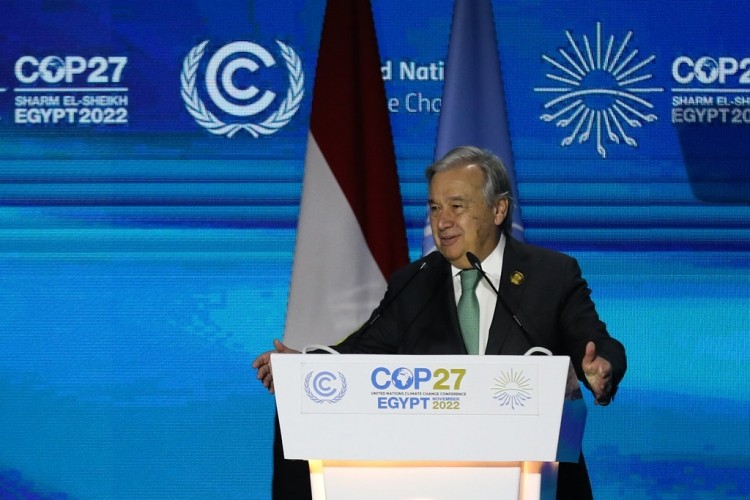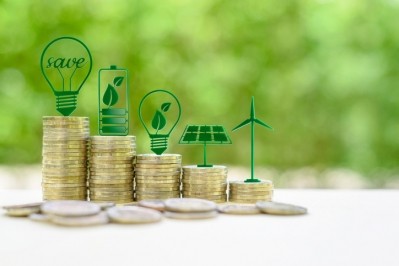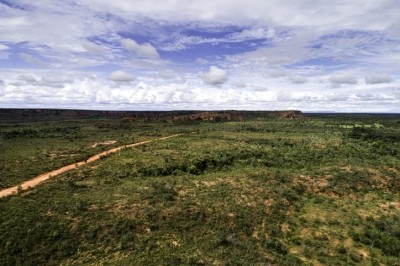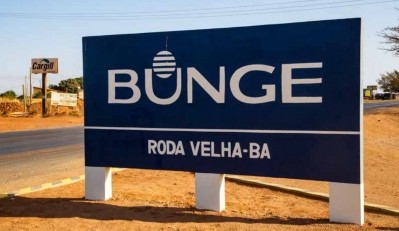COP27
NGOs: Agri-commodity trader roadmap falls short; it won’t put the sector on a 1.5C pathway

The signatories are ADM, AMAGGI, Bunge, Cargill, COFCO International, Golden Agri-Resources, JBS, Louis Dreyfus Company, Marfrig, Musim Mas, Olam Group, Olam Food Group (ofi), Wilmar International and Viterra. The plan was facilitated by the Tropical Forest Alliance (TFA), and the World Business Council for Sustainable Development (WBCSD).
The roadmap is in response to a joint Corporate Statement of Purpose made at COP26, in which the trading companies agreed to lay out a plan by COP27 to set agricultural production and trade on a 1.5C pathway to help meet global climate goals.
However, advocates like the World Wildlife Fund (WWF), the Rainforest Action Network (RAN), and Mighty Earth are critical of the plan.
The WWF acknowledged the roadmap is a step forward in some respects, but the organization said it still falls far short of putting the agri-commodities sector, and therefore the planet, on a 1.5C pathway.
While the plan represents progress for some commodities such as beef and palm oil, the NGO said it represents a step back for soy.
The campaigners stressed how critical it is now that the full sector takes meaningful, joint action to address both deforestation and conversion so global climate goals, and a livable future, can be achieved.
'Cherry-picking' approach leaves some landscapes out in the cold
Carter Roberts, CEO, WWF-US, said:
“A year ago, the world’s largest agricultural commodity traders stood up in Glasgow and committed to do their part to deliver on the stable climate and intact nature we all need. Today those companies issued a roadmap that demonstrates progress on palm oil and steps forward on beef but falls well short of what is needed on soy and falls short on expectations that the roadmap delivers what’s needed for a 1.5-degree future.
"We commend the palm oil sector for strong commitments that cover supply from all origins. This builds on leadership from governments, supply chain actors and civil society, as well as strong progress in key landscapes, particularly Indonesia in recent years. The cattle sector commitments also demonstrate progress, with a clear commitment to end all deforestation in the Amazon by 2025, legal and illegal, for direct and indirect suppliers. However, the language regarding cattle commitments in the Cerrado is contradictory and may not cover the critical issue of habitat conversion beyond deforestation. Importantly, the cattle sector made no commitments to address issues of deforestation and land conversion in other biomes. While this is a good start, more must be done.
"For soy, the roadmap includes deforestation but not habitat conversion. In so doing, it cherry picks which lands it will cover, leaving out significant parts of the most important landscapes, including 74% of the Cerrado in Brazil where 250 million tons of greenhouse gases are emitted on a yearly basis. Finally, the absence of a meaningful cut-off date will surely spark a race-to-the-bottom since producers will be paid to accelerate habitat destruction in advance of a commitment date three years away.”
Mauricio Voivodic, executive director of WWF-Brazil, added:
"This roadmap presents some advances as companies are finally recognizing that they need to eliminate the destruction of ecosystems from supply chains. However, it’s still frustrating that ecosystems like Cerrado are not yet fully and consistently considered in the presented commitments of the soy and cattle sectors.
"The absence of a clear cut-off date and of targets to eliminate conversion from the soy supply chain locks the sector in a trajectory of high carbon emissions and continuing loss of carbon emissions. Science demonstrates that deforestation and conversion must be urgently eliminated from the commodities supply chains to decrease global GHG emissions sufficiently and reach the 1.5- target."
GHG inventories urged
Gemma Tillack, forest policy director, RAN, called the plan a “business-as-usual” roadmap that does not deliver on the ‘high ambition’ promises made by the traders at last year’s COP.
“The roadmap fails to enforce the December 2015 cut-off for the palm oil sector and the cut-off for deforestation and conversion-free (DCF) forest-risk commodity supply chains that requires 100% sourcing from land that was deforested or converted no later than January 1, 2020.
“A key element of the roadmap is the use of monitoring and response systems to identify and address deforestation and conversion. What’s needed is a commitment to transparent monitoring and non-compliance systems so stakeholders can see first-hand if progress is being made in halting deforestation, conversion, and degradation of natural ecosystems in the supply sheds of the world’s largest agricultural commodity traders.
“The traders must set absolute emission reductions targets, not just intensity targets, and transition plans as to how they will achieve these reductions. They must also publish detailed greenhouse gas inventories allowing third parties to scrutinize their calculations for anomalies. This is critical if their targets are to be science-based.
“The decision to exclude commitments and actions on ending exploitation and upholding human rights from the roadmap once again demonstrates the failure of these traders to remediate the social and environmental harms caused by their global supply chains.”
She also claimed that the traders, TFA, and the WBCSD failed to adequately consult civil society over the past year of development of the roadmap.
'Plan will undermine President Lula's agenda'
US environmental organization, Mighty Earth, in a statement on the agri-commodity traders’ plan, said
“The roadmap’s insistence that individual companies undertake best efforts to establish individual cut-off dates for deforestation no later than 2025 means the bulldozers will keep running and the destruction will continue.
“Cargill, Bunge, and the other companies are trying to defy that we’re in a climate and nature crisis, as well undermining President Lula’s agenda that puts forests at the center of Brazil’s economic and political development.”








